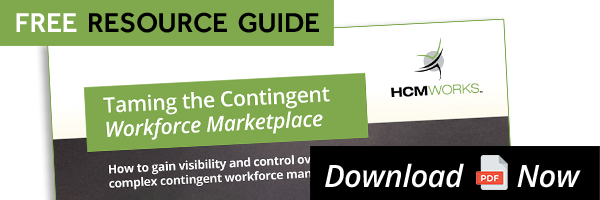Millennials are a hot topic for every business in the current climate, particularly when it comes to addressing the issue of a shortage in skilled workers and acquiring top industry talent.
There are now more than 82 million millennials in the United States, and, with baby boomers getting ever closer to the age of retirement, it’s now widely considered that millennials will be stepping into a wide range of senior roles (if they haven’t already) in the near future.
This is backed up even further by LinkedIn, which claims there are more than 11 million millennial global decision makers on LinkedIn alone.
Despite this, small and large organizations alike are still struggling to hire and retain millennial talent. This poses a major challenge when considering millennials (those born between 1980 and 2000) now make up a whopping 35 per cent of the entire workforce.
In fact, according to the 2018 Deloitte Millennial Survey, millennials are losing faith in businesses and this is negatively affecting their loyalty. This has left 43 per cent of millennials envisioning leaving their jobs within two years, and only 28 per cent seeking to stay beyond five years.
The report states: “Younger workers need positive reasons to stay with their employers; they need to be offered the realistic prospect that by staying loyal they will, in the long run, be materially better off - and as individuals, develop faster and more fully than if they left.”
Why are millennials disillusioned with the current workplace?
Many millennials are disillusioned with the current business world. Deloitte’s report suggests millennials feel that employers do not share their views on key issues, including the purpose of work and workplace flexibility.
Over 75 per cent of millennials told the Deloitte study that businesses focus too much on corporate agendas over contributing to society, with nearly two-thirds saying that companies have no ambition beyond wanting to make a profit.
If employers want to acquire and retain the highly-skilled workers that belong to the millennial workforce, then they must find new ways to engage, manage and interact with them to ensure they don’t get left behind by their competitors.
While there are a huge number of ways your business can improve engagement with the millennial workforce, here are two tips that will ensure your company can begin to meet the needs of this highly important demographic.
1 - Offer a world-class company culture
A positive workplace culture is one of the top factors in a millennial’s job seeking decision. In fact, the Deloitte study found that 52 per cent of millennials look for a company with a positive workplace culture when seeking a new job.
Millennials want to work for a company that values people, as well as their work and personal life. This could include looking for a company that values flexibility in the workplace, an organization that has a corporate social responsibility strategy or a business which offers a world-class workplace environment.
Improving company culture can be complex, but in the end it will have significant benefits for your company from improved access to talent, better performance results, more loyal workers and much more.
2 - Build a contingent workforce
Not only does the contingent workforce offer a wide range of benefits for your company (which you can read about in our blog (‘The Contingent Workforce: 6 Benefits Associated With Hiring Non-Permanent Workers’), but it is also a way of acquiring and retaining top millennial workers.
In fact, the Deloitte study found 62 per cent of millennials regard the gig economy as a viable alternative to full-time work.
The pull is not something that appeals to only those in junior roles either. Seven in 10 millennials who are members of senior management teams or on boards would consider taking on short-term contracts or freelance work as an alternative to full-time employment.
So, what is it that makes contingent work so attractive for millennials? According to the Deloitte study, the top reasons include:
- To earn more money (62 per cent).
- To choose their own hours (39 per cent).
- To achieve a better work/life balance (37 per cent).
- To work independent or be their own boss (33 per cent).
- For a challenge in a new type/format of work (31 per cent).
- To be paid for performance rather than a salary (30 per cent).
Despite millennials actively seeking contingent work, organizations in most cases are failing to deliver - and this generally comes down to poor contingent workforce management strategies.
Poor contingent workforce management leads to fragmented processes that reduce visibility and control into non-permanent workers, resulting in wasted time and money for your organization.
Thankfully, a managed services provider (MSP) that specializes in the contingent workforce, such as HCMWorks, will be able to develop a plan for the unique needs of your business. Want to learn how? Contact us today to find out more information.



